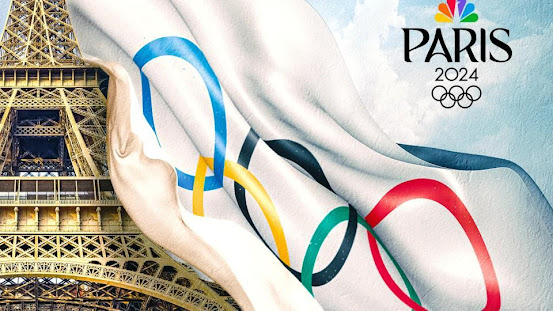The Comprehensive Guide to the 2024 Olympics
Introduction to the 2024 Olympics
The 2024 Olympics, officially known as the Games of the XXXIII Olympiad, are set to be a spectacular event showcasing the pinnacle of athletic prowess from around the globe. Scheduled to take place in Paris, France, this edition of the Olympics promises to be historic, not only for its competitive spirit but also for its cultural and technological advancements. Paris, having hosted the Olympics twice before (1900 and 1924), is poised to deliver a memorable experience combining tradition and innovation.
Historical Significance of the 2024 Olympics
Paris: A City of Olympian Heritage
Paris has a rich history with the Olympic Games. Hosting the Olympics in 2024 will mark the 100th anniversary of the last time the city held the event in 1924. This centennial celebration is not just about sports but also about commemorating the evolution of the games and their impact on global unity and cultural exchange. The city’s iconic landmarks, including the Eiffel Tower and the Champs-Élysées, will serve as stunning backdrops for various events, blending historical grandeur with modern athleticism.
Innovations and Sustainability
The 2024 Paris Olympics are set to be the most sustainable and technologically advanced games to date. The organizers have committed to a carbon-neutral event, with an emphasis on renewable energy, reduced waste, and sustainable construction. Many of the venues are either temporary or repurposed structures, ensuring minimal environmental impact. The use of cutting-edge technology will enhance both athlete performance and spectator experience, with advancements in sports analytics, virtual reality, and live broadcasting.
Key Venues and Infrastructure
Stade de France
The Stade de France, located in Saint-Denis, will be the primary venue for the opening and closing ceremonies, as well as the track and field events. This stadium, with a seating capacity of 80,000, is the largest in France and has been modernized to provide state-of-the-art facilities for athletes and spectators alike.
Aquatics Centre
The new Aquatics Centre in Saint-Denis will host swimming, diving, and synchronized swimming events. Designed with sustainability in mind, this venue features energy-efficient heating and cooling systems, as well as rainwater harvesting capabilities.
Paris La Défense Arena
This multi-purpose indoor arena will be the site for gymnastics and basketball finals. Known for its flexibility and advanced acoustics, the Paris La Défense Arena can accommodate up to 40,000 spectators and offers a unique blend of intimacy and capacity.
Sporting Events and New Additions
Traditional Sports
The 2024 Olympics will feature traditional sports such as athletics, swimming, gymnastics, and team sports including soccer and basketball. These sports have a storied history within the Olympics and continue to draw significant global interest and participation.
New and Returning Sports
In addition to traditional sports, the 2024 Olympics will see the return of sports like surfing, skateboarding, sport climbing, and karate, which were introduced in the Tokyo 2020 Olympics. These sports aim to attract younger audiences and reflect the evolving interests of the global sporting community.
Innovative Sports
Breaking, also known as breakdancing, will make its Olympic debut in Paris. This inclusion highlights the Olympics' commitment to cultural diversity and contemporary trends, offering a fresh and dynamic element to the games.
Athlete Preparation and Qualification
Training Regimens
Athletes competing in the 2024 Olympics undergo rigorous training regimens, often years in advance. These regimens are tailored to optimize performance, incorporating the latest in sports science, nutrition, and psychological preparation. Training facilities around the world have been upgraded to meet the demands of elite athletes, ensuring they are in peak condition for the games.
Qualification Process
The qualification process for the Olympics is highly competitive, with athletes required to meet stringent standards set by their respective sports federations. This process includes international competitions, world championships, and continental qualifiers, ensuring that only the best athletes make it to the Olympic stage.
Cultural and Social Impact
Global Unity and Cultural Exchange
The Olympics are more than just a sporting event; they are a celebration of global unity and cultural exchange. Athletes from over 200 countries will converge in Paris, fostering a spirit of camaraderie and mutual respect. The cultural programs associated with the Olympics, including exhibitions, concerts, and local festivals, will provide a platform for cultural exchange and showcase the diversity of participating nations.
Economic Impact
The economic impact of the Olympics on Paris and the surrounding region is expected to be substantial. The influx of tourists, coupled with the global media coverage, will boost local businesses and provide long-term benefits in terms of infrastructure improvements and international visibility. The games are projected to create thousands of jobs and stimulate economic growth in various sectors.
Technological Advancements in the 2024 Olympics
Smart Venues
The 2024 Olympics will feature "smart" venues equipped with the latest technology to enhance the spectator experience. These venues will offer real-time data, interactive maps, and personalized content, ensuring that fans have access to all the information they need at their fingertips.
Broadcasting and Media
Advancements in broadcasting technology will make the 2024 Olympics the most accessible games in history. High-definition streaming, virtual reality, and augmented reality experiences will bring the excitement of the games to audiences worldwide, offering immersive experiences that were previously unimaginable.
Athlete Monitoring
State-of-the-art athlete monitoring systems will provide real-time data on performance, health, and safety. These systems will help coaches and medical teams make informed decisions, ensuring that athletes can compete at their best while minimizing the risk of injury.
Conclusion
The 2024 Olympics in Paris promise to be a landmark event, combining the rich heritage of the Olympic Games with innovative approaches to sustainability, technology, and cultural exchange. As we anticipate this global celebration of sport, it is clear that the 2024 Olympics will set new standards for future games, leaving a lasting legacy for generations to come.

Comments
Post a Comment